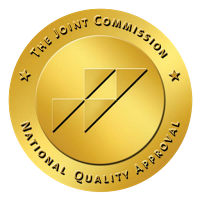In a rapidly evolving healthcare landscape, one thing is certain: data drives better care. Nowhere is this more urgent or transformative than in behavioral health. As providers across the nation navigate the shift toward value-based care, those who embrace data and outcomes tracking are not just adapting they’re leading.
Why Outcomes Matter More Than Ever
Historically, behavioral health has struggled to quantify success. Unlike many medical fields, mental health and substance use treatment outcomes aren't always visible on a scan or lab result. But that’s changing. With the rise of evidence-based practices, validated assessment tools, and performance-based reimbursement models, behavioral health providers are now expected to prove their impact.
Payers, policymakers, and families alike want to know:
Are patients getting better? Are they staying better? And how do we know?
The Cutting Edge of Measurement
At the forefront of this movement are organizations building real-time, data-informed systems of care. These systems don't just track attendance or discharge status they evaluate:
- Clinical symptom reduction using tools like PHQ-9, GAD-7, or the Columbia-Suicide Severity Rating Scale (C-SSRS)
- Functionality improvements, such as return to work or school
- Quality of life indicators—housing stability, relationships, and personal goals
- Post-discharge outcomes, such as readmission rates, relapse prevention, and ongoing engagement in recovery
- The goal is clear: to close the loop between treatment and real-world success.
Leveraging Technology for Better Care
Modern behavioral health leaders are integrating digital tools that make outcome tracking seamless. Whether through EMR-based dashboards, client self-reporting tools, or AI-assisted analytics, these technologies help clinicians respond faster, tailor care more precisely, and demonstrate impact with confidence.
Moreover, predictive analytics are emerging as a powerful frontier. By analyzing historical data and patterns, providers can begin to identify clients at higher risk of relapse, disengagement, or crisis and intervene early.
Value-Based Care Isn’t the Future It’s the Now
In Arizona and across the country, Medicaid and commercial payers are shifting to value-based agreements. That means outcomes are not just clinical they’re financial. Reimbursement is increasingly tied to metrics like:
- Reduced hospitalization or crisis events
- Sustained engagement in care
- Patient satisfaction and goal attainment
- Continuity of care post-discharge
Providers who can track, report, and improve on these outcomes are the ones being prioritized in contracting and reimbursement.
A Culture Shift: From Compliance to Excellence
Embracing data isn’t about surveillance it’s about empowerment. For providers, it’s a chance to raise the bar, justify funding, and improve lives with precision. For clients, it’s about being seen, heard, and supported in measurable ways.
Creating a data-driven culture starts with:
- Training staff to value and use outcomes data
- Integrating measurement into everyday workflow
- Celebrating progress not just in sobriety or symptom reduction, but in housing, parenting, education, and purpose
Conclusion: A Smarter, Stronger System
Behavioral health is no longer operating in the shadows of the medical system. The providers who invest in measurable outcomes, transparent data, and continuous improvement are paving the way for a system that’s smarter, stronger, and more human.
Because in the end, data is just a reflection of what we all want: real, lasting change in the lives of the people we serve.













